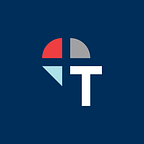Policy Spotlight: Student loan moratorium ends August 31?
Clarity on the federal student loan moratorium scheduled to end on August 31 could arrive this week in conjunction with new details on the “Fresh Start” initiative announced in the spring. If you’re concerned about making your student loan payments, whenever they resume, contact your loan servicer now to discuss your options.
Clarity on the federal student loan moratorium scheduled to end on August 31 could arrive this week in conjunction with new details on the “Fresh Start” initiative announced in the spring.
The Washington Post reports today that the “Biden administration has created a plan to bring 7.5 million Americans in default on their federal student loans back into good standing, restoring their eligibility for financial aid and removing the incident from their credit history,” as part of the “Fresh Start” initiative to spare borrowers from wage, tax refund and Social Security benefit garnishments. A formal announcement could arrive this week.
The federal student loan moratorium has been a lifeline for many of our clients. It has enabled some to make faster progress toward paying off their balances and more expensive debt from things like credit cards. For others it has freed up funds for savings.
But, the moratorium has also caused a lot of confusion. As its scheduled end of August 31 nears, many of our clients are wondering what’s going to happen and how to prepare.
The short answer: If you’re concerned about making your student loan payments, whenever they resume, contact your loan servicer now to discuss your options.
Below we answer a few frequently asked questions to help you maximize the moratorium for your personal finance benefit, whenever it ends. Visit the Department of Education’s coronavirus student loan page for additional information.
WHAT IS THE STUDENT LOAN MORATORIUM AND WHEN DOES IT END?
While the student loan moratorium is in place, you’re not required to make any payments towards your loans, your loans won’t accrue any interest and you won’t be charged any late fees or penalties. These policies are in place automatically; you don’t need to do anything to avoid penalties. If you feel that your servicer hasn’t abided by these rules, contact them immediately! It is scheduled to end on August 31, as of today.
WHICH LOANS ARE COVERED AND NOT COVERED?
Only federal student loans (which are owned by the U.S. Department of Education) are covered by the moratorium. These days, most federal loans are disbursed through the Federal Direct Loan Program and fall into one of four categories:
- Direct Subsidized Loans to undergraduates based on financial need.
- Direct Unsubsidized Loans to undergraduates, graduate, and professional students not based on financial need.
- Direct PLUS Loans to graduate or professional students and parents.
- Direct Consolidation Loans.
Loans not owned by the Department of Education — loans held by banks, credit unions, online lenders, colleges/universities, etc. — are not covered by the moratorium so borrowers are still responsible for making their monthly payments.
CAN I CONTINUE TO PAY MY LOANS?
Yes, if you want to continue making payments, contact your loan servicer.
WHAT SHOULD I DO IF I CAN’T PAY?
Contact your loan servicer now to discuss your situation if you’re concerned about being able to make student loan payments, whenever the moratorium ends.
If you have federal loans but you’re not sure who your servicer is, then call the Federal Student Aid Information Center at 1–800–433–3243 or check out the Department of Education’s student loan servicer page.
Don’t wait to reach out with questions about forbearance or deferment and to agree on a payment plan. Soon your loan servicer will likely be overwhelmed with calls and wait times could be (crazy) long. Regardless of your ability to pay, you’ll be best served by contacting them sooner rather than later. As long as your loans are in good standing, you have options for avoiding default, even if the standard payment plan is too expensive, including Income-Driven Payment Plans, deferment, and forbearance.
WHAT SHOULD I DO IF I CAN PAY?
Prioritize your highest-interest debt. Any payments you make during the moratorium period will be applied to your loan’s principal balance, unless you have unpaid, accrued interest. Payments to the principal will enable you to pay off your loan faster. However, if you have other, higher-interest debt, a credit card for example, then you’re likely better off paying it off first since student loans won’t start accruing interest again until September at the earliest. TrustPlus Personal Finance Coaches can help you to prioritize, to make the most strategic use of your hard-earned dollars.
